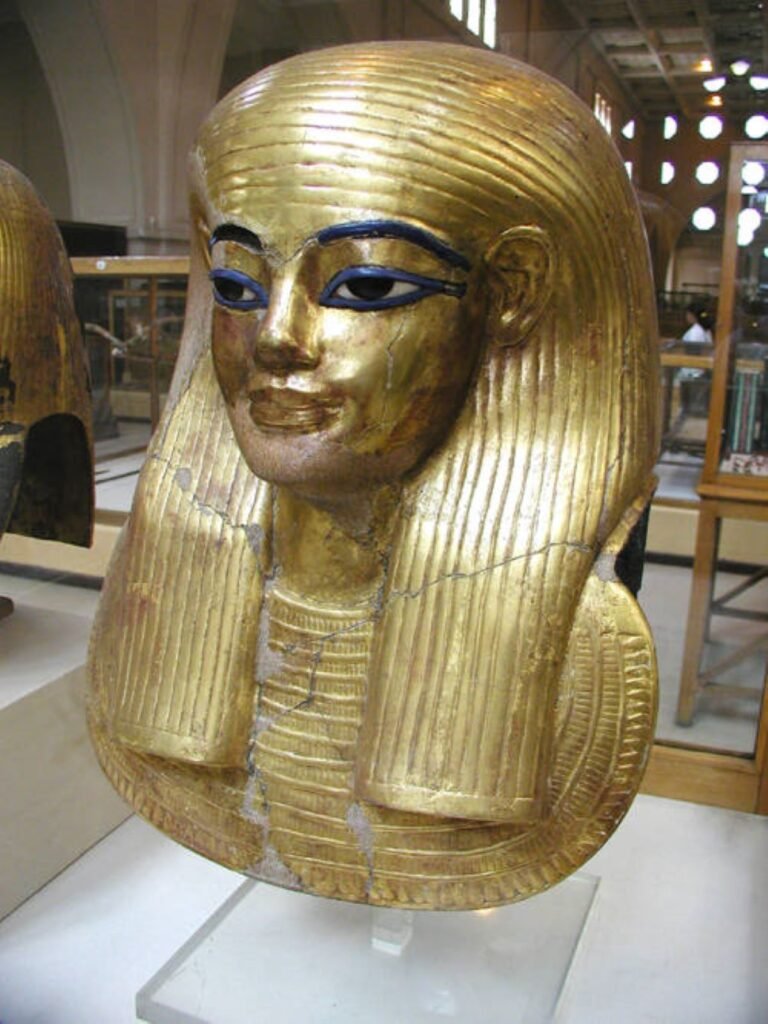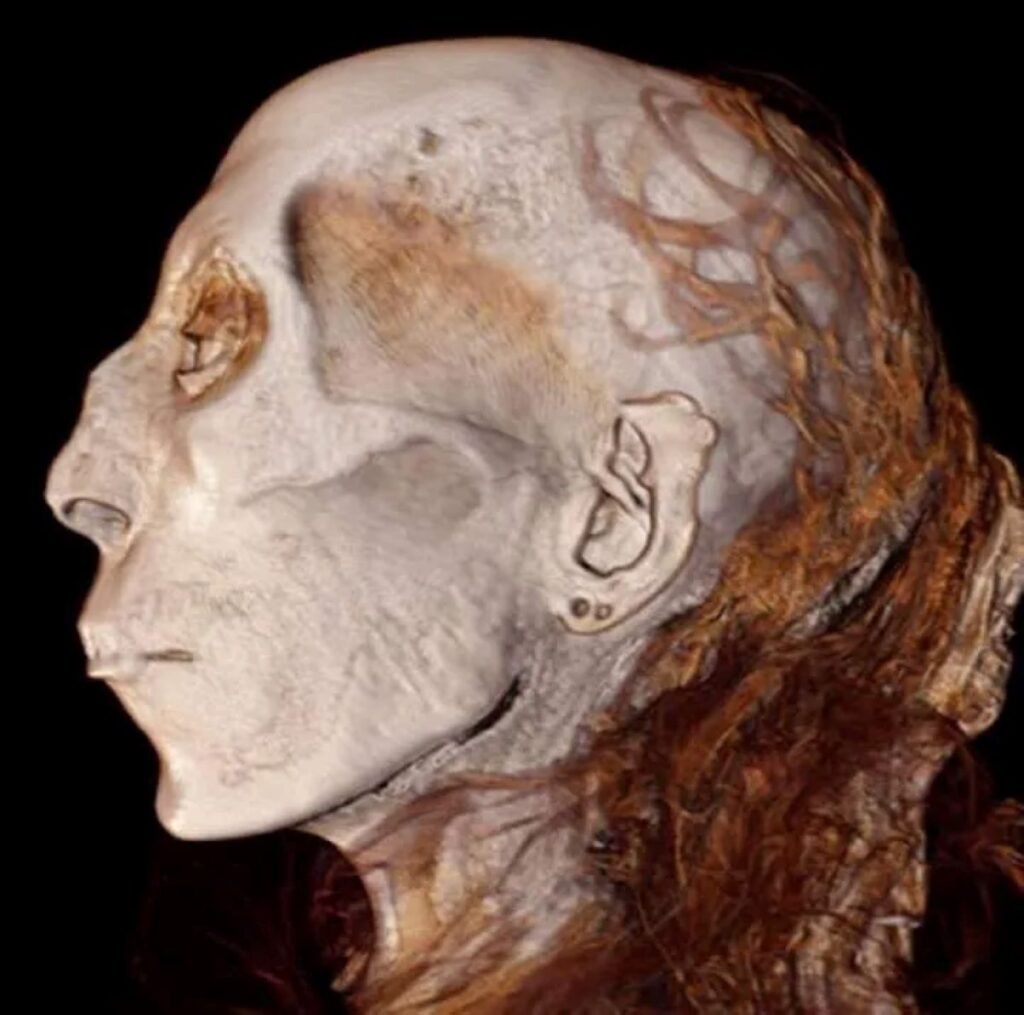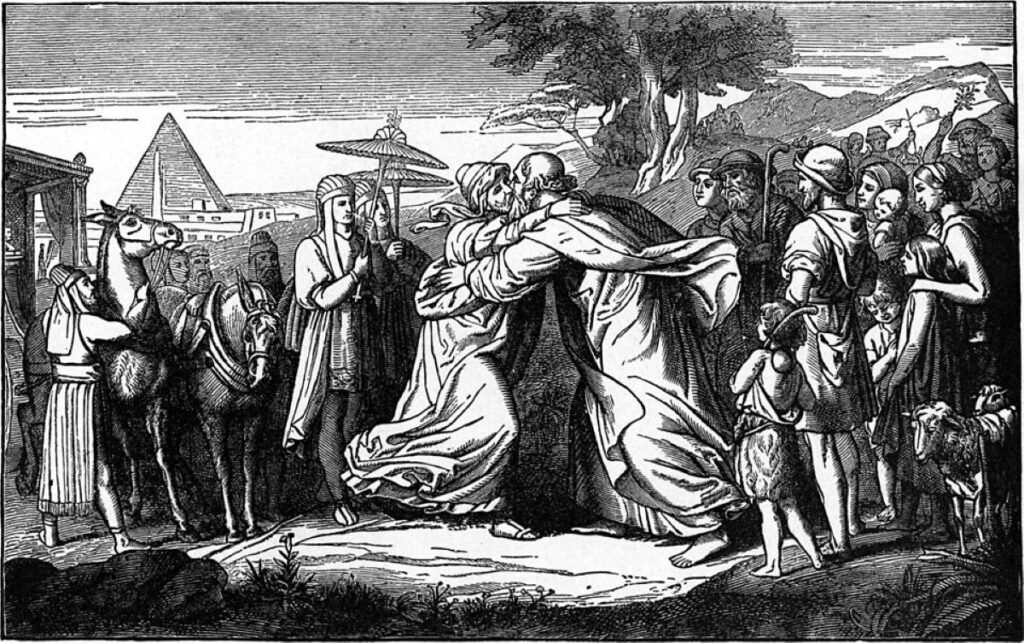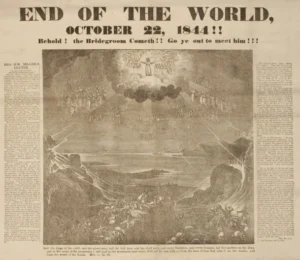Okay, before we get into it, it is known to scholars that the Bible is not an exact historical account, especially concerning its first few books. It is more helpful to think of it as patches of genuine historical accounts, with romantic fantasy and some morality peppered in, all to create a blockbuster-style mythology that keeps ideas going for generations.
Whether you believe it is not the question here today, though.
In 1905, a mummy was found in tomb KV46. At the time, it was one of the most spectacular finds until the discovery of Tutankhamun’s tomb. Although he did not look Egyptian, there he was, in the Valley of the Kings, among royalty, complete with all the fanfare that came with it.
Some theorists speculate that he could be the biblical Joseph, which is intriguing. So, was he?

Image credit: Wikimedia Commons, Yuya’s Mummy Mask
Let’s Weigh The Evidence
Most proponents of this theory point to some key information as evidence. They include the following:
- When Yuya Was found, Grafton Elliot Smith, a British anatomist, examined the mummy. He noted that the physical appearance did not conform to what one might typically think of as an Egyptian native. This led to speculation that he was a foreigner and possibly Semitic.

Image credit: Wikimedia Commons Yuya’s Mummy (Side Profile)
- Some people also point to the name etymology as another piece of evidence. ‘Yuya’ resembles ‘Yosef,’ the Hebrew name for Joseph. This is intriguing, but the similarities are circumstantial and don’t hold much weight.
- Another thing to point to is the biblical account, which states Joseph was appointed to be vizier or second-in-command to the pharaoh. Yuya was buried in the Valley of the Kings, an honor reserved only for royals. With his wife Thuya, buried beside him, they had a daughter Tiye, who became the Great Royal Wife of the Pharaoh Amenhotep III.
These points are thought-provoking, but mainstream Egyptologists and bible scholars cautiously approach the Yuya-Joseph identification.
Why Doubt The Theory?
There are several reasons, but here are three main ones:
- Timeline discrepancies– The chronology doesn’t make sense as Yuya was alive during the 18th dynasty, around the 14th century BCE, while biblical accounts indicate Joseph was alive centuries earlier.
- Lack of direct evidence—There is no explicit inscription or artifact linking Yuya to the story of Joseph. The parallels drawn by proponents of the theory are based on circumstantial evidence and have nothing else to back them up.
- Foreign influence was common in Egypt. As one of the premier civilizations of its time, Egypt was revered and attracted foreigners from around the Mediterranean world. Multiple instances of foreigners rising to high ranks in Egypt exist, especially during the periods of Hyksos and the following dynasties. Just because Yuya is a foreigner doesn’t make him Joseph.

Image credit: Wikimedia Commons, Joseph kisses Jacob
It’s Fun to Speculate, But It Remains That: Fun Speculation
I know that was not what you may have wanted to hear. Finding a biblical figure’s remains intact like this would be quite the event. However, the theory remains speculative. While his Semitic origins and name are intriguing, they are nowhere close to being positive identification.
But hey, we learned something about ancient Egypt along the way, which is cool.











